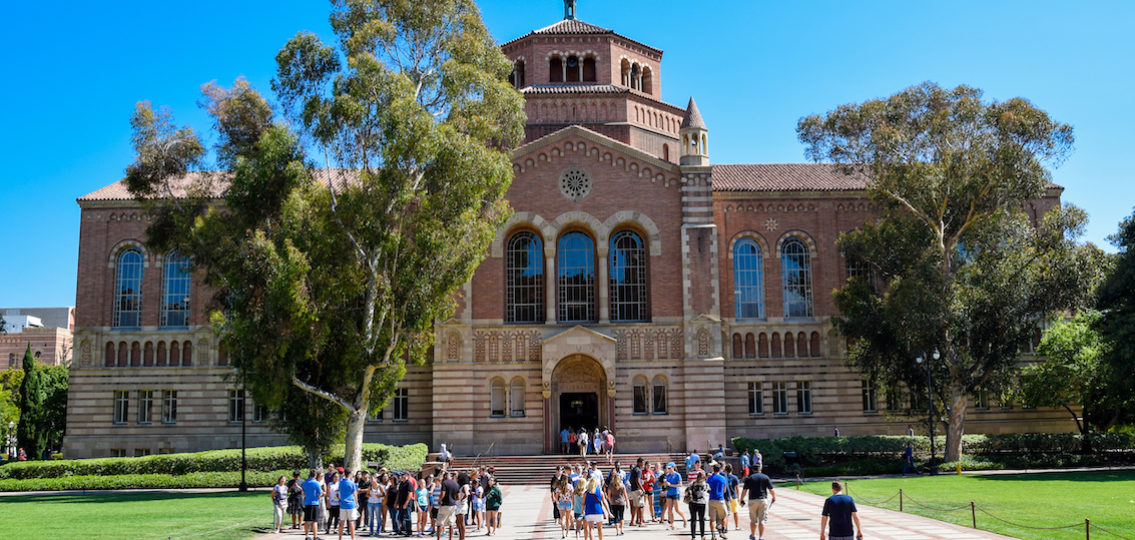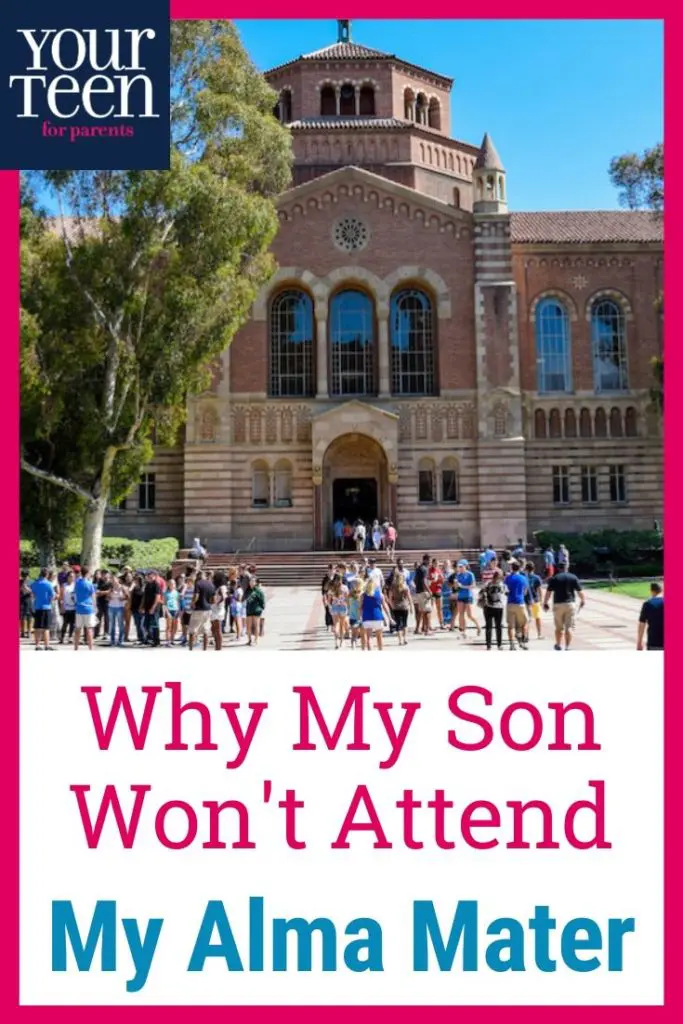I stood in my kitchen, holding the letter from the prestigious private college I had graduated from in the 90s.
“Our records indicate you have a child in high school,” the brightly colored letter stated. “We welcome and encourage applications from children of alumni!”

I did indeed have a child in high school, a junior in the throes of his college search.
The letter took me back to my own college search. I had been thrilled when my tireless pursuit of straight A’s and zealous participation in extracurricular activities paid off with admittance to this esteemed college. And here I was years later holding a concrete perk of graduating from this private university: my son, a legacy applicant, would be looked upon favorably in the admissions process.
The letter was one I’m sure that any of those parents involved in the Varsity Blues admission scandal would die to possess. It was a letter that thousands of students working day and night and dreaming of attending such a university would drool over.
“Hmm,” was my surprising response.
Attending such an elite college is not for everyone. Harvard, Yale, Duke, Stanford, and other renowned private universities are amazing institutions, for sure. However, my personal experience attending such an illustrious college, as well as my gut reaction, tells me it is not for my son.
Why My Alma Mater is not the Right Place for My Son
1. It’s not a fit
The biggest reason? My son is enthusiastic about culinary arts and my alma mater does not offer that course of study.
So rather than pursue admission to a school based on its name and prominence, he is focused on finding a college that is the best fit for his passion. It might look like a college that offers a four-year degree in hospitality management. Or it might look like the nearby community college that boasts culinary training under the guidance of master chefs.
I attended my university because it was the best college I got into, rather than the best college to help me achieve my career goals. For being such a smart kid when I was younger, that was a dumb move and I don’t want my son to make the same mistake.
2. The cost
According to U.S. News and World Report, the average tuition and fees for one year at a private college in 2019-2020 was $41,426. For state residents attending public college, the average was $11,260. Community colleges cost even less.
I am not saying that private colleges are not worth the expense. Looking back at my experience, I realize that my peers who knew exactly what they wanted to be—a lawyer, an engineer, a doctor—leveraged their undergraduate degrees from our reputable institution for admission to highly competitive graduate programs. I’m sure they would say the cost to attend a private university was worth it.
But in my son’s case, paying a lot of money just to say he went to a name-brand college would be foolish.
3. The social aspect
I was the only person from my high school accepted to my university a thousand miles from my home. I knew no one when I started.
Sure, I learned how to make friends, many of whom I’m still close with today. It also prepared me for the real world. After all, most people don’t start a job knowing everyone in the company.
That said, I missed out on the familiarity and comfort that most of my peers had when they went to schools closer to home. Many of them roomed together and went home on the weekends, which I could not.
My son has expressed a desire to attend college closer to home — which makes my alma mater a poor match for him.
4. It’s his choice
“Hey,” I said to my son as he entered the kitchen. I waved the letter in the air. “Did you know that you get some special consideration as a legacy candidate to my old college?”
“That’s okay, Mom,” he replied as he raided the pantry for snacks. “They don’t have what I want to study anyway.”

I put the letter from my world-renowned, prestigious private college in a pile on the counter. The pile with coupons, flyers, and old school announcements.
It’s there if he changes his mind and wants to look at it. But it’s fine with me if he doesn’t.





